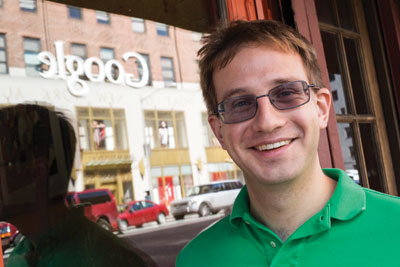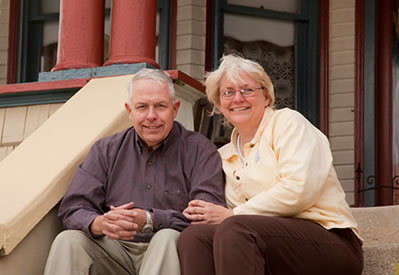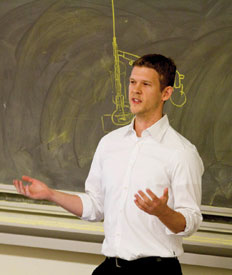Google Docs, the suite of web-based productivity tools available through the Internet search giant’s Drive service, is changing the way people work by allowing users anywhere in the world to collaborate in real time on the same spreadsheets, presentations, and word processor documents.
 One of the people making this new way of collaboration possible is 2008 computer science graduate Jake Voytko.
One of the people making this new way of collaboration possible is 2008 computer science graduate Jake Voytko.
Working as part of a team of developers, Voytko’s primary responsibilities include coding and implementing new features into Google Docs’ word processor. He was part of the group responsible for adding offline-editing functionality, a feature that was incorporated last spring and heralded by tech writers and Docs users everywhere. Voytko said the project was “one of the most difficult” he has worked on at Google, since he was writing code for which the browser support was still in development.
Prior to being recruited by Google, Voytko was on the technical staff at the Sarnoff Corporation, where he had the opportunity to work alongside “a bunch of brilliant researchers” designing computer vision systems for the military. His coworkers in Google’s Manhattan offices are equally brilliant, he notes.
“It’s humbling to come into work each day and talk to people who have such clear focus, and clear thoughts, and who are able to break down problems so cleanly,” Voytko said.
He credits what he learned as a math minor at TCNJ with helping him think more clearly as a programmer.
“Mathematics requires such a degree of precision of thought that there is really no forgiveness there,” Voytko said. Other disciplines allow for some wiggle room in forming arguments, he said, “But in math, if your ultimate result is to get a working proof, then you actually have to prove it. You have to have that rational bridge from your starting point to your finishing point. If I had just gotten a computer science degree, I would have needed to learn that type of precision of thought while I was working, as opposed to having already been exposed to it as a math minor.”





